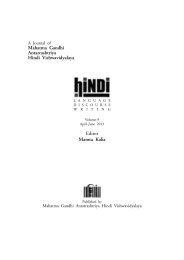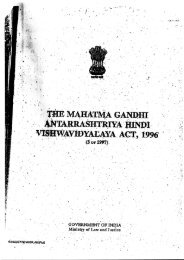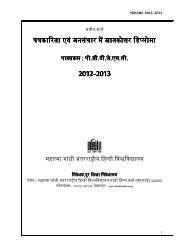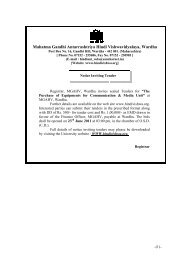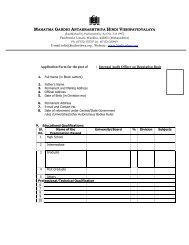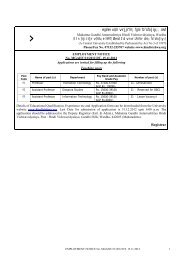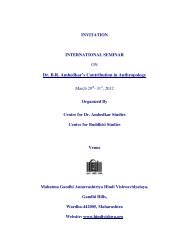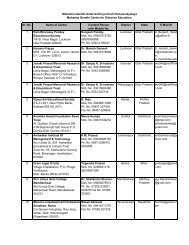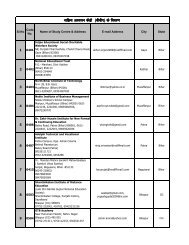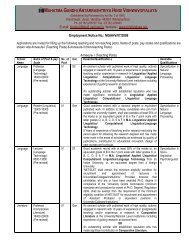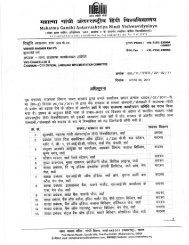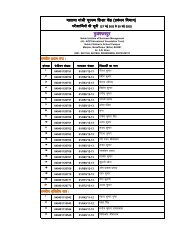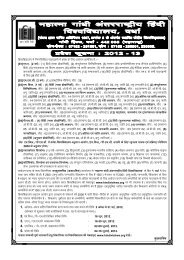A Journal of Mahatma Gandhi Antarrashtriya Hindi Vishwavidyalaya
A Journal of Mahatma Gandhi Antarrashtriya Hindi Vishwavidyalaya
A Journal of Mahatma Gandhi Antarrashtriya Hindi Vishwavidyalaya
Create successful ePaper yourself
Turn your PDF publications into a flip-book with our unique Google optimized e-Paper software.
Editor's Note<br />
‘<strong>Hindi</strong>’ is primarily a translation based journal. Every quarter we receive scores<br />
<strong>of</strong> contributions from authors and translators. It is strange to find that authors<br />
seldom translate well even though they are in complete control <strong>of</strong> the subject<br />
matter. It is usually the translators who prove torch bearers to their work <strong>of</strong><br />
art. Even bilingual authors do not prove to be good translators <strong>of</strong> their own<br />
work; they may write with finess in each <strong>of</strong> their source language but they fail<br />
to build a bridge.<br />
Harper Collins India organised recently a one-day seminar on precisely this<br />
problem. The participants discussed various avenues <strong>of</strong> translation. Some felt that<br />
an English translation should read like an original English text while some others<br />
held that a translation should retain the flavor <strong>of</strong> the source language. Again<br />
what are the possibilities <strong>of</strong> a translated text. Does it get polished or dimmed<br />
in the process? There was much to say for and against each proposition. Authors<br />
<strong>of</strong> quite a few regional languages feel that they are not given a fair share in<br />
the world <strong>of</strong> translation. They hold that <strong>Hindi</strong>, Marathi, Bengali, Malayalam and<br />
Oriya works are translated into English more <strong>of</strong>ten than Telugu, Tamil, Kannada<br />
and Assamese. The tilt <strong>of</strong> the English language publishers in favor <strong>of</strong> <strong>Hindi</strong>,<br />
Bengali etc. also influences the translator’s choice. Finally what is the rapport<br />
between the author and his translator? Do they have a dialogue and care for<br />
each other or are they encased in their solo occupation? Very <strong>of</strong>ten the publisher<br />
decides whether a certain language book is viable for translation and sales. To<br />
him a book is a product like any other product that has to sell. A book may<br />
have a longer shelf-life than onions and potatoes but ultimately no businessman<br />
likes his ware in the cold storage. A publisher is a businessman whom we<br />
<strong>of</strong>ten mistake for a missionary.<br />
In any discussion on translation, the translator should be the nuclear point. It<br />
is worthwhile to know how a translator looks upon his onus <strong>of</strong> recreating a book<br />
or an article or a poem? First and foremost, he has to like what he reads<br />
and decides to translate. Then on he has to subject himself to the discipline<br />
<strong>of</strong> two languages, the source language and the language <strong>of</strong> translation. The assignment<br />
January-March 2012 :: 5



